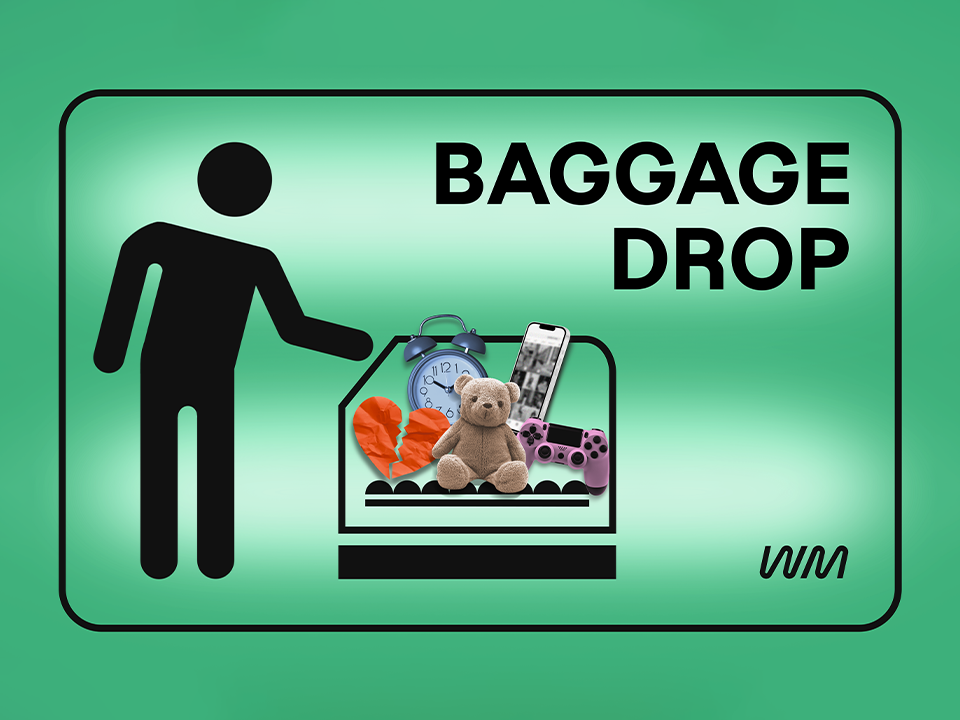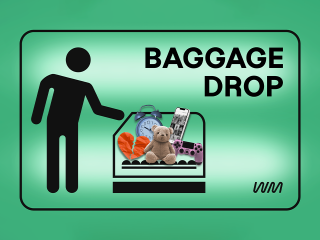Step 10 | Growth: When Spiraling is Good


Nina Polyné, PsyD
Licensed clinical psychologist, consultant, professor, author, and speaker specializing in anxiety and the intersection between emotional, physical, and spiritual wellness
Host and clinical psychologist Nina Polyné, PsyD, kicks week four off with a bang…or should we say with a twist? Dr. Polyné, and a few guests, help us reflect on our first three weeks of changes by turning the concept of growth on its head—healthy growth is actually not as linear as we’re often taught. In fact, a healthy amount of self-compassion during growth keeps it shaped more like a tornado. Find out why that’s a good thing in episode 10.
Download the How to Actually Measure Your Growth worksheet!
Learn more about Dr. Polyné
(MUSIC BEGINS)
[VOICE CLIP 1]: Healthy change to me at first gives me anxiety because I think about all the diet plans or fitness routines that I never finish.
[VOICE CLIP 2]: I think of green juice and waking up at 4:00a.m. and I have zero interest in either of those things.
[VOICE CLIP 3]: Healthy change is almost a deeper and bigger change than just choosing a banana or choosing a cookie.
[VOICE CLIP 4]: It’s when I figure out that my actions are not synchronized with my goals.
[VOICE CLIP 5]: You become almost tired of yourself feeling a certain way, living a certain lifestyle. You kind of want to just build yourself back up because you see so much in yourself.
[VOICE CLIP 4]: So I need to make a change to be able to reach my goals. Not just because someone is telling me, because I want to be better for myself.
[VOICE CLIP 5]: It's time for you to just start doing something new. So you start stepping out of that shell and start feeling like, "Let me take baby steps.”
[VOICE CLIP 3]: It's a movement. It's a life change. It's a lifestyle. It's a way to approach life.
NINA POLYNÉ, PsyD, HOST: This week on Baggage Drop, we’re getting deeper into reflecting on healthy change and we’ll give you some tips & techniques for keeping that momentum moving forward, long after we’ve worked together here. I’m Dr. Nina Polyné. I’m a Clinical Psychologist, and member of the Wondermind Advisory Committee, and I’ll be hosting your final week of Baggage Drop. Hey there! I’m so happy to be hosting the final episodes of this show.
(MUSIC BEGINS)
At the beginning of this series, we explored ways “Baggage” can be anything that holds you back. We talked about how your motivation can help you move in a direction that feels authentic to you. And we learned how habit stacking can keep changes feeling attainable. We’re going to use this final stretch to reimagine our concept of growth.
Let’s make things clear: growth is non-linear. Growth is not a path, or a road, a sidewalk, or even a train track. Healthy growth looks a lot like…a tornado.
But for a little less-scary metaphor, let’s consider growth a spiral. One that’s tighter at the bottom and wider, looser, at the top. When you start your growth at the bottom of the spiral, you can physically feel it: it’s actually tight. Change that causes growth may be tense, stressful, or anxious, and you may feel your every move a lot more. That’s totally normal.
But the key to the spiral is: as you level up, closer to the top, the spiral’s swirls broaden, and similarly, your choices seem to have more room to breathe, causing less discomfort in your life.
You’ll notice, moving up the spiral, that the experiences that used to hold you back don’t have as much power in keeping you stuck.
Pretty cool for something that looks like a tornado, right?
On that whirlwind, I want to note here that there will be setbacks.
Ok, so hear me out—the reason each level of the spiral is round is so that we can remember setbacks are a normal part of growth and the human experience. I’d probably be very curious if someone told me they were experiencing zero setbacks. It’s not the most comfortable experience, but a shared one among us. I have them, too!
VIOLA ROST : Setbacks are very, a normal part of the process of learning new things. In the time of our life where we learned the most things, we're children with a very high curiosity and a very high tolerance for trying something again and again. And when we go at it from an adult mind, we think we should be able to do it right away, but in fact, it's something new. And so we should have more tolerance for glitches, messing up.
DR. POLYNÉ: That was clinical psychologist Viola Rost, who’s based in Germany.
Taking two steps back is a common part of our experience as humans. Use it as information! You now have more knowledge about how to face similar situations in the future with more confidence. And that’s growth! So even if you’re trying extra hard and still find yourself challenged by something you were trying to leave in the past, give yourself a minute…and then try to focus on what motivates you to achieve your goal.
Practicing self-compassion is key. Dr. Kristin Neff, an Associate Professor of Educational Psychology at the University of Texas Austin, has been a pioneer on the topic; her research has found that those who practice self-compassion benefit from emotional well-being, successful pursuit of their goals, and resilience when goals aren’t met.
(MUSIC BEGINS)
Let’s hear what the Wondermind community shared with producer Pia Glenn about their own self-compassion, and how it relates to motivation.
PIA GLENN, PRODUCER: How do you energize or motivate yourself through a challenge?
[VOICE CLIP 6]: I think having small, more achievable goals than a big goal. So instead of saying, "I'm going to start running so I can run a marathon," it's like, "You know what? I'm just going to walk to the pier and back to my house."
[VOICE CLIP 7]: I think by having a reward or something to look forward to, like a light at the end of the tunnel. If I work out, then afterwards maybe I read a nice book in bed, or something that I really enjoy.
[VOICE CLIP 6]: Probably prayer. I read the Bible, journal, a glass of wine, do some self-care, facial or massage, something like that.
PIA: Love it! How do you motivate someone else, a friend or a family member, when they're facing a challenge?
[VOICE CLIP 8]: I try to send them good vibes. I don't know, like encouragement. Probably text, via text. Yeah.
PIA: How about you?
[VOICE CLIP 6]: Remind them that they can do it, just like positive words and encouragement for them.
[VOICE CLIP 8]: I'm not trying to shove anything down their throats. I'm just trying to be an example, a silent example. Because being a preacher, it's not working well with people, at least people that are around me, so I think being a silent example.
[VOICE CLIP 9]: It takes practice for sure. It is tough to just be like, oh, I'm not going to listen to those negative thoughts. Because if it's something that you're repeating to yourself over and over, it's hard to break that cycle. But you really just have to mindfully like, OK, I got to keep going. You have to be conscious of it before it's a habit.
DR. POLYNÉ: Motivation—whether it’s internal or external—will help you stay encouraged during any back steps you encounter. Obviously, feel your feelings, check in with your body. Like, “UGH! That’s so frustrating!” or “I am so nervous, and my stomach is in knots!” But also talk to yourself with compassion.
Don’t worry too much about what that means right now. We’ll dive deeper into effective self-talk in our next episode.
(MUSIC BEGINS)
So in our first exploration of the growth spiral, let’s try this exercise: take a moment to think about the goals you’ve set for yourself, and picture all the ways you’ve kept those goals aligned with your “why.”
Now write, or picture in your mind’s eye, all the steps you’ve taken to move forward.
Nothing is too small. Even partial steps should be celebrated. Yes, getting up and out of bed, showing up, and listening to this podcast, can count as three steps!
Every step, big or small, toward your growth and wellness, is a great one. and you are deserving of celebration, hunny child.
Now I want you to reflect on the qualities within yourself that helped you achieve those goals. List three right now. Those qualities are known as your resilience factor.
We all got ‘em. Celebrate your wins, celebrate your resilience, and be generous with yourself.
Reflection is key when you’re on your growth spiral. And if you’d like, share these lists, words, or ideas with someone you’re close to.
You might be surprised by how good that feels!
Here’s Wondermind advisor Dr. Thomas Vance:
THOMAS VANCE, PHD: When I think about celebrating yourself is remembering how far you came. For me, in my graduate school program, I dropped out mentally a hundred times. So when I graduated, I was like, "Man, I remember all the times that I really wanted to quit." So usually those times are the perfect moments to reflect back and to celebrate yourself. The simple exercise of remembering to reflect and celebrate your growth, with or without other people, will help you move forward on your path.
(BAGGAGE DROP THEME BEGINS)
DR. POLYNÉ: Thanks for joining me today! If you want, leave Wondermind a voice message and let us know what qualities you celebrate in yourself! Just click the link in the show notes. Your contribution might even get featured on our Friday episode! Tune in on Wednesday for our next episode of Baggage Drop!
Credits:
Senior Producer: Marisa Bramwell
Senior Writer: Amy Thompson
Producer: Jennifer Bassett
Producer: Pia Glenn
Audio Engineer: Joel Edinberg
Music: Epidemic Sound
Wondermind does not provide medical advice, diagnoses, or treatment. Any information published on this website orby this brand is not intended as a replacement for medical advice or a substitute for the advice of a professional, and you should not rely on it. Always consult a qualified health or mental health professional with any questions or concerns about your mental health


